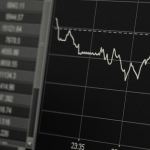In 2017, The Economist magazine ran a catchy headline: “The world’s most valuable resource is no longer oil, but data.” It is an open debate whether data is the “new oil”, but it has become a highly valuable commodity not only for the Big Tech companies that have grown off the back of it, but for virtually every business.
As such, “big data” has made its way into the business school classroom. MBA courses that specialize in the application of data science to business problems are booming, with red hot employer demand for a blend of business and data science skills that is outstripping supply.
“Whether you want to be a consultant, analyst, brand manager, or entrepreneur and regardless of your industry of interest, employers need people that can sit at the interface between data science and business strategy,” says Eric Bradlow, vice dean of analytics at Wharton.
According to Bradlow, this is why many business schools have been integrating analytics into MBA curriculum.
For instance, business schools such as the Mendoza College of Business, HEC Paris and Fox School of Business have launched MBA specializations or concentrations in business analytics.
Wharton has two MBA majors in both statistics and business analytics. In addition, it partners with organizations on their most pressing business challenges, enabling students to put theory into practice. “Our partnerships facilitate access to real-world datasets through structured programming and projects that help to develop and strengthen students’ data science and business analytics skills,” says Bradlow.
Employer demand for analytics skills on the rise
Rachel Tonner, careers consultant for Imperial College Business School in London, says employer demand for business analytics skills is high and growing as companies increasingly make decisions based on data. “The requirement has increased for their workforce to have the ability to manage, process and interpret this data to make decisions on wider strategy, such as whether to push out new products or services.”
Positions within consulting firms, marketing, operations and analyst roles, especially, demand data skills, she says. “But as analytics now touches every role, it is becoming a skill that all MBAs apply daily to some extent, rather than a skill that sits with some roles and not at all in others.”
Tonner says that being able to work with and interpret large volumes of data is important, and advanced skills within Excel are essential for this. In addition, the programming languages SQL, Python and R are also valuable tools.
Prior to starting their MBA program at Imperial, students undertake a data analysis primer course to gain a basic understanding of statistical concepts before completing their core decision analytics module. Students learn modelling and how to analyze data to understand relationships, predict future outcomes, and solve complex problems.
Artificial intelligence and machine learning electives are offered to MBA students, as well as a one-day introduction to Python workshop.
NYU Stern professor Anindya Ghose, in New York, says the key technical skills required are data modeling, data visualization and predictive modeling. Students acquire these skills from coursework such as statistical modeling, data engineering, programming, econometric modeling and from machine learning experiments.
However, soft skills such as communication are also crucial. “The key soft skills required are the ability to tell a story from mining the data and the ability to lead a team with eclectic individuals from disparate work experiences,” Ghose says.
The industries that are recruiting data-minded MBAs
Today every job requires people with some level of business analytics and data science skills, according to the professor. But there are certain industries where the skills are relatively more in demand, such as retail, e-commerce, media, advertising, consumer package goods, banking and finance, insurance and technology.
Many of the product manager, consulting and marketing jobs also require these skills, he says. However, asking the right questions, understanding the business implications and firm strategy all require business skills too.
Many companies have made the transition to become more data driven, with examples like Amazon and Google. Yet others struggle to develop a “data culture”. “The reason that demand continues to be strong is that many businesses are still struggling with how to transform their business into analytically driven organizations,” says Alan Montgomery, professor of marketing at Carnegie Mellon University’s Tepper School of Business.
He says that some management positions are solely focused on analytics, while others require an appreciation and vision of what analytics can and cannot do. “One might think that business analytics skills are all mathematical or analytical. However, this is not true,” says Montgomery.
“A critical skill is being able to communicate and persuade individuals that lack analytics skills on the merits of an analytical approach.”
Analytics is found through the MBA curriculum at Tepper. But those that want to specialize are likely to find the Business Analytics Track valuable. As Montgomery says: “Demand for business analytics skills continues to be strong. Analytical approaches improve upon the efficiency of decision making.”










